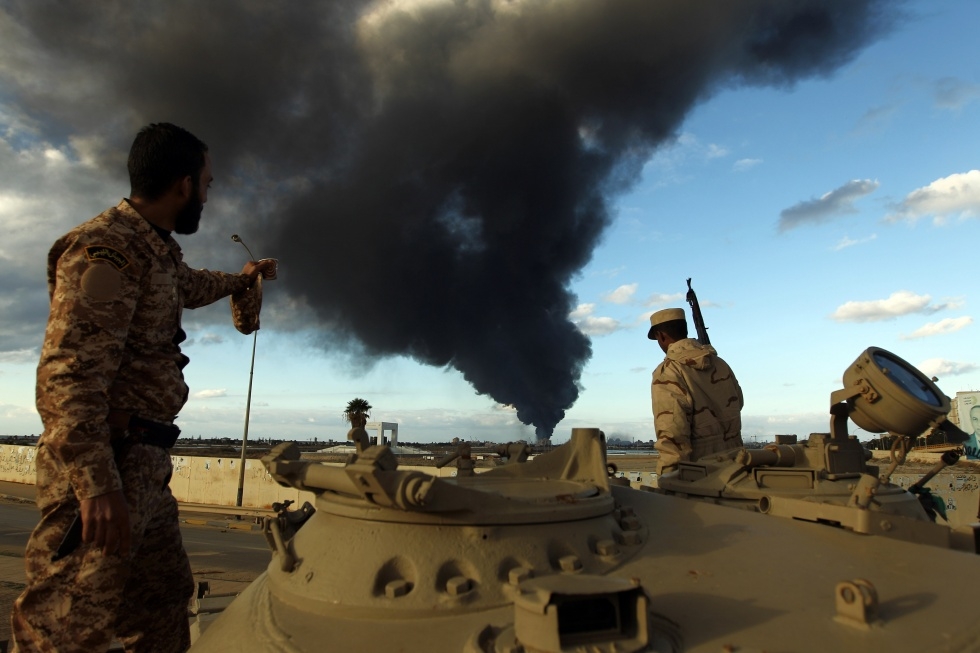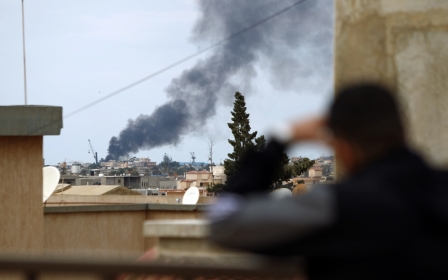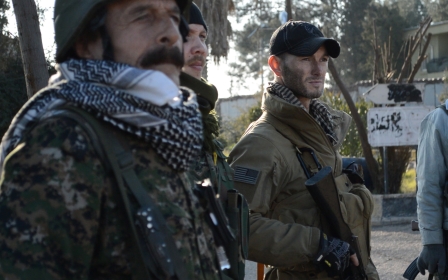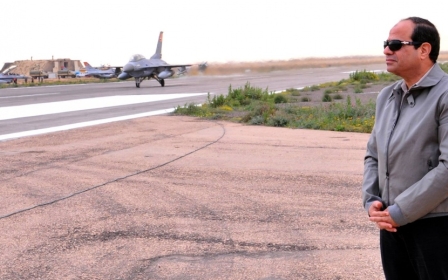Arab states call for help in Libya from war-weary West

UNITED NATIONS - Arab states on Wednesday urged the UN to back Libya’s fight against Islamic State (IS) militants who recently beheaded 21 Coptic Christians, in the face of Western reluctance to join another Middle East war.
Egypt led calls from Arab states to supply weapons to Libya’s UN-recognised government and army while using a Mediterranean naval blockade to stop weapons from falling into the hands of rival militias and IS, the caliphate-building extremists headquartered in Syria.
“This terrorism is seeking to spread terror throughout the Arab and Islamic world, from Iraq to Syria to Libya and through them to the heart of Europe,” Egypt’s foreign minister, Sameh Shoukry told UN Security Council members on Wednesday.
An Arab-backed draft UN resolution was due to be circulated on Wednesday seeking military support for Libya and overturning an arms embargo that was imposed on the North African country at the start of 2011 NATO-backed uprising that toppled dictator, Colonel Muammar Gaddafi.
“This requires the international community, which has helped the Libyans to rid itself of the dictatorial regime in the past before leaving it prey to the security vacuum,” Libyan foreign minister, Mohammed al-Dairi told the 15-nation body.
“If we fail to have arms provided to us, this can only play into the hands of extremists.”
Egyptian President Abdel-Fattah el-Sisi called for UN-approved airstrikes against IS in Libya on Tuesday, but Cairo changed its original request after a muted response from the Western powers that led airstrikes in 2011.
The US and Europeans are wary of intervention in Libya after coalition raids halted Colonel Gaddafi’s clampdown on anti-government protests and ousted the long-term leader, but failed to guarantee a secure political transition.
Libya descended into chaos under a patchwork of militias. Two rival governments and parliaments - each backed by different militias - rule in the eastern and western regions. After militias took over the capital, Tripoli, the elected parliament shifted to Tobruk.
Some militias have pledged allegiance to IS - the brutal Sunni Muslim group in control of large parts of Syria and Iraq - and one of them released a video this week of the gruesome mass beheadings of 21 Coptic Christians from neighbouring Egypt.
“Western thinking is that Libya is a morass that should be avoided at all cost. Nobody wants to be sucked in, it’s not a forefront of the war on terror, it has limited strategic interests and its government is split. There are no good options there,” analyst Barak Barfi told Middle East Eye.
Paul Sullivan, a security scholar at Georgetown University, said a naval blockade would do little to boost security in Libya, which has a porous southern border and is already awash with weapons. Regional security can only be achieved by Egypt, he told MEE.
“The wall between chaos, violence and IS spreading across the region is the Egyptian military. Who else is there?” Sullivan said. “IS played upon ethnic divisions in Egypt. Ten percent of its population watched 21 of their co-religionists being executed by Muslim killers. Al-Sisi has to move fast.”
Cairo launched airstrikes on IS weapons caches and training camps in its increasingly turbulent neighbour in response to the beheadings. Barfi, from the New America Foundation, a think tank, said he doubts Egypt’s military can defeat IS alone.
“Egypt is fighting a low-grade insurgency within its own borders that it cannot extinguish, where it knows the terrain, population and has good intelligence,” he told MEE. “Going to a neighbouring country where they know nothing is unrealistic.”
As UN Security Council members met in New York, US President Barack Obama spoke at a Washington meeting on tackling IS ideology and recruitment efforts. Some 60 world leaders are due to join the talks on Thursday.
William McCants, an analyst for the Brookings Institution, a think tank, said Western leaders try too hard to distance IS from the Muslim faith.
“Westerners are not used to encountering apocalyptic messages in Islamist propaganda. Al-Qaeda downplayed Islamic prophecies of the Day of Judgment, preferring more accessible political rhetoric and wary of stirring messianic fervour,” he told MEE.
“IS is different. While its tactics and strategies are practical, its goals and motivations are eschatological. The interplay has expanded the group’s territory and enlarged its ranks. It will continue releasing grisly videos until we get the point.”
New MEE newsletter: Jerusalem Dispatch
Sign up to get the latest insights and analysis on Israel-Palestine, alongside Turkey Unpacked and other MEE newsletters
Middle East Eye delivers independent and unrivalled coverage and analysis of the Middle East, North Africa and beyond. To learn more about republishing this content and the associated fees, please fill out this form. More about MEE can be found here.




